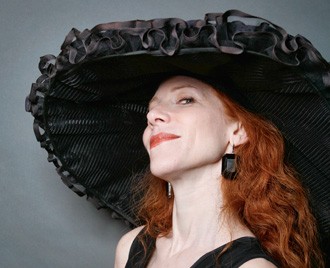A female friend of mine just broke up with her billionaire boyfriend. She told me she wasn’t happy. The guy is super picky about whether you put things back in exactly the right spot and doesn’t have the greatest sense of humor. Still, I think she’s making the biggest mistake of her life. Doesn’t she know how hard it is to find a decent and wealthy man? I’m a happily married woman, so why does this make me so mad? – Irate
The way you see it, your friend found that mythical leprechaun with the pot of private jets and beachfront property – and she was all, “Too short! Too green! Next!”
Okay, you concede, she was a little miserable, but hey – happiness can’t buy money. And no, money isn’t unimportant – and it’s especially vital when you don’t have enough to get lunch from the grocery store instead of from the dumpster. But even money is subject to what economists call “diminishing marginal utility.” This is a term for how the benefit (“utility”) we get from each “unit” of a thing we’re consuming – like a good or service – decreases for us once we’ve filled our basic need for it. Norman Li, an evolutionary psychologist who started out in economics, explains this pretty simply: “Enough oxygen to breathe is a lot better than no oxygen, but extra (“marginal”) oxygen is not much better than enough.” Thus, oxygen has diminishing marginal utility.
Li, helpfully, took an economist’s look at mating preferences, meaning he didn’t just ask the open-ended question, “So … what would you like in a mate?” – which leads people to shoot for the moon (“Oh … ringer for Hugh Jackman, funnier than Chris Rock, annual earnings matching the GDP of France ...”) Here in the real world, most of us have to settle – at least somewhat. So Li tested which attributes people would consider necessities (versus luxuries) in a long-term relationship by giving subjects either a tight budget or a generous one to “spend” on various qualities they’d want in a partner.
When women (the childbearers and carers of the species) had limited mate-shopping dollars, they allocated most of them to having a Mr. Provider – a man with status and resources – saying “Oh well” to hunkaliciousness and other qualities. Men on a tight budget disproportionately allocated their mating dollars toward hotitude – not surprising, because beautiful features are like a flashing “Fertile Myrtle” sign. However, even on a constrained budget, women and men each saw kindness as a must-have – ranking it a close second to their top priority.
Getting back to your friend, who’s dumping what you see as a perfectly serviceable billionaire, consider that his pickiness and humorlessness may play out as unkindness. Apparently, for her, having, oh, 100 bedrooms on four continents to cry herself to sleep in doesn’t make up for that. And consider the view from diminishing marginal utility: “Okay, a billionaire is nice, but maybe I could make do with a funny, easygoing millionaire.” To stop being mad, focus on what you have to be grateful for instead of what she’s, uh, squandered – a lifetime of 26-hour arguments about how she failed to use the micrometer calipers to return the loofah to its rightful position.
© 2016, Amy Alkon, all rights reserved. Got a problem? Write Amy Alkon, 171 Pier Ave, #280, Santa Monica, CA 90405, or e-mail [email protected] (advicegoddess.com). Weekly radio show: blogtalkradio.com/amyalkon



















